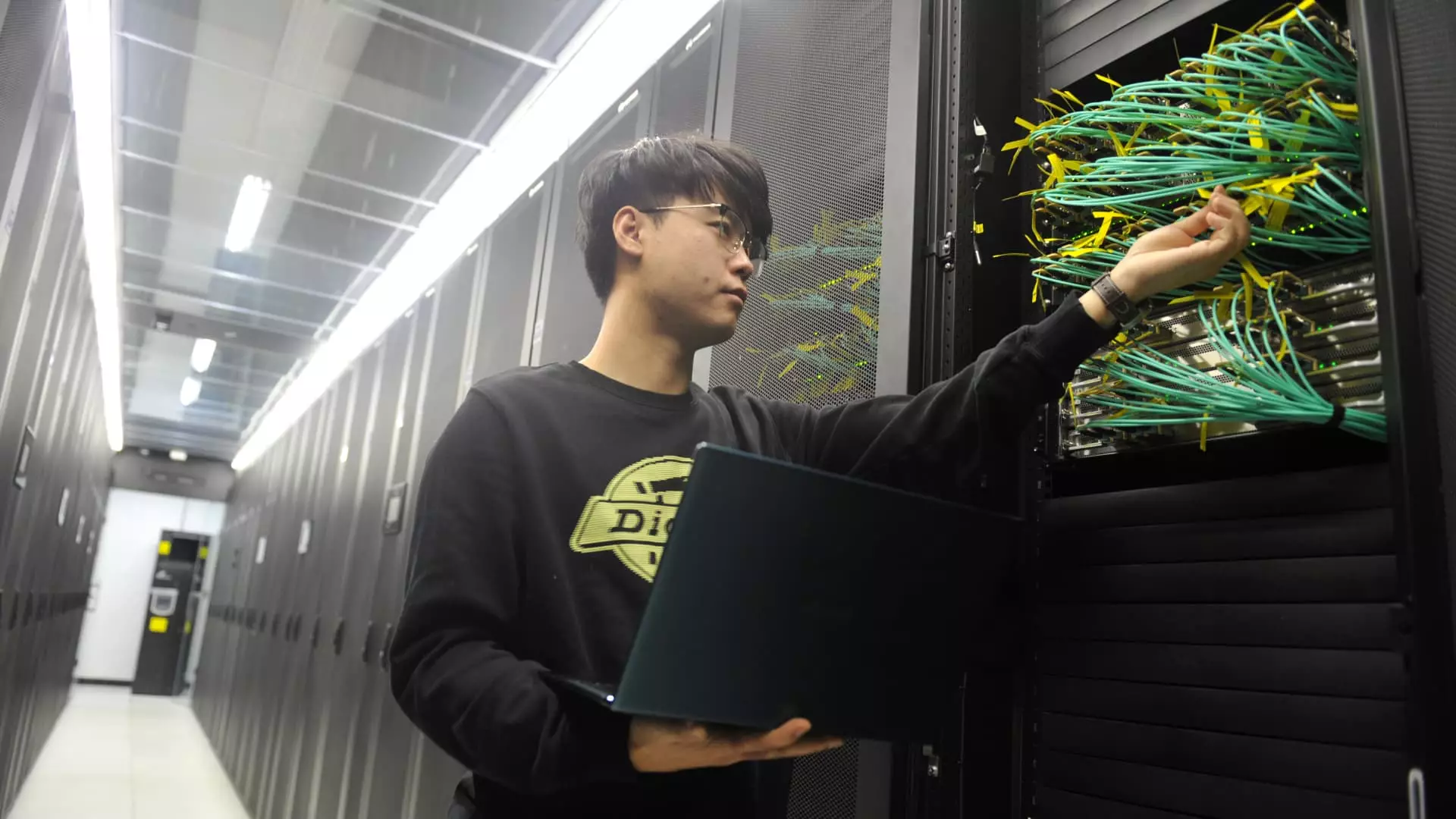The ongoing trade tensions between the United States and China seem to cast a dark cloud over economic prospects for both nations. As tariffs escalate and diplomatic relations fluctuate, one might assume that Chinese companies are facing an uphill battle. However, this environment has paradoxically created opportunities for certain businesses, particularly those entrenched in the rapidly advancing field of artificial intelligence (AI). Some of these companies may not only withstand the storm but could emerge stronger than before.
According to recent analyses by financial experts, including Bernstein analyst Boris Van, the demand for AI is anticipated to remain robust. This growth can largely be attributed to innovative technologies such as DeepSeek, which have fundamentally transformed the landscape of application development. As companies scramble to adopt AI for operational efficiency and competitive advantage, Beijing is rallying behind this sector with substantial support, signaling a potential reversal of fortunes for companies leveraging these technologies.
Government Support and Corporate Resilience
In the midst of this trade debacle, the Chinese government is reportedly doubling down on generative AI initiatives. The prospect of AI becoming a pivotal technology for sustained growth in China is not merely speculative. Historical patterns suggest that geopolitical tensions often catalyze domestic investment in local technologies. During the previous term of U.S. President Donald Trump, China increased its spending on local information technology as a means to neutralize the impacts of tariffs. Bernstein’s forecasts point toward similar behaviors in today’s environment, as companies look to the government for support to navigate turbulent waters.
Prominent names such as Kingsoft Office and Kingdee are leading the charge in the AI domain. With the integration of advanced AI features into their flagship products, these companies are quickly grabbing the attention of corporate clients seeking efficiency gains. Kingsoft’s word-processing application, WPS, recently reported an impressive surge in monthly active users, now boasting nearly 20 million users. This growth not only reflects the consumer interest but also showcases how companies can thrive amid adversity when they pivot wisely.
AI’s Role in Corporate Revival
The impact of AI technologies cannot be overstated. Businesses that successfully incorporate AI capabilities are likely to see improvements in cost efficiency and, consequently, their bottom lines. With Chinese corporate earnings showing signs of a much-anticipated turnaround, the pressure to embrace new technologies has never been more potent. Companies like Kingdee are making significant strategic shifts, transitioning into full-fledged AI entities focused on enterprise management solutions.
Recent partnerships with high-profile entities, such as Geely and Kweichow Moutai, are evidence of the growing demand for AI integration within business processes. This pivot not only positions these companies favorably within their respective industries but also aligns them with the Chinese government’s vision of dominating the global AI landscape.
The Cloud Computing Boom
While the trade tensions create uncertainty in the macroeconomic landscape, certain sectors remain largely insulated from these impacts. Cloud computing is one such arena, with analysts at Nomura identifying it as a critical growth driver. Companies involved in internet data centers and cloud services are predicted to see little influence from the tariff wars since their primary revenue streams originate from domestic markets.
Noteworthy players like China Mobile and GDS are looking confident, with GDS projecting revenue growth north of 9% this fiscal year. The demand for cloud infrastructure and data centers is set to increase sharply, driven by the thirst for computing power and digital solutions, largely unaffected by international trade disputes. This resilience offers a beacon of hope amid an uncertain economic climate.
The Broader Implications
Interestingly, the escalating tariff conflict may even bolster investments in technologies vital for domestic growth. While the U.S. and China engage in economic jousts, China’s strategic emphasis on innovation may lay a robust foundation for a new era of tech leadership. The government’s focus on AI and digital infrastructure could serve as a catalyst for transforming its economy, positioning it for future competitiveness on a global scale.
Despite the doom and gloom painted by the media regarding U.S.-China relations and potential economic fallout, there exists a silver lining. As tariffs rise, domestic demand for AI and cloud computing will likely flourish. What remains to be seen is how businesses will navigate this landscape, but for now, it appears that China’s AI sector is primed to capitalize on both challenges and opportunities ahead.

